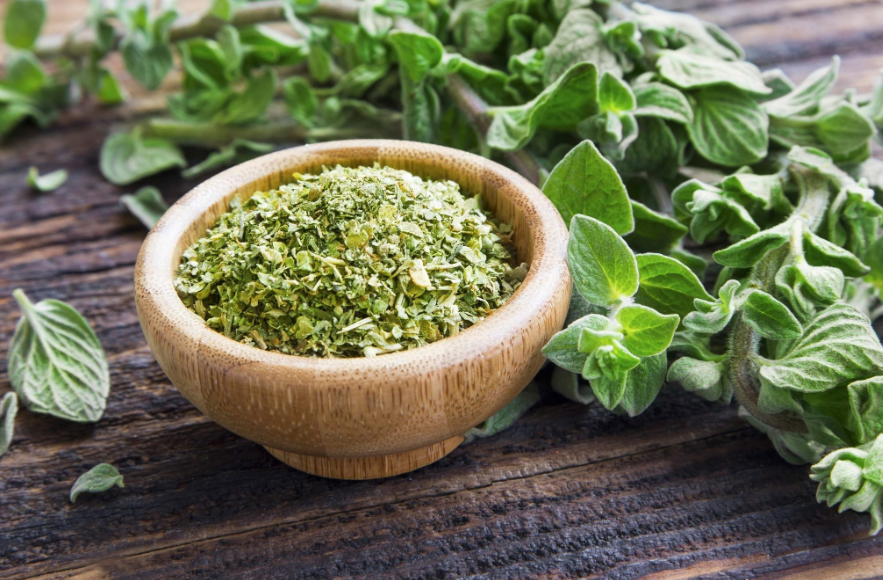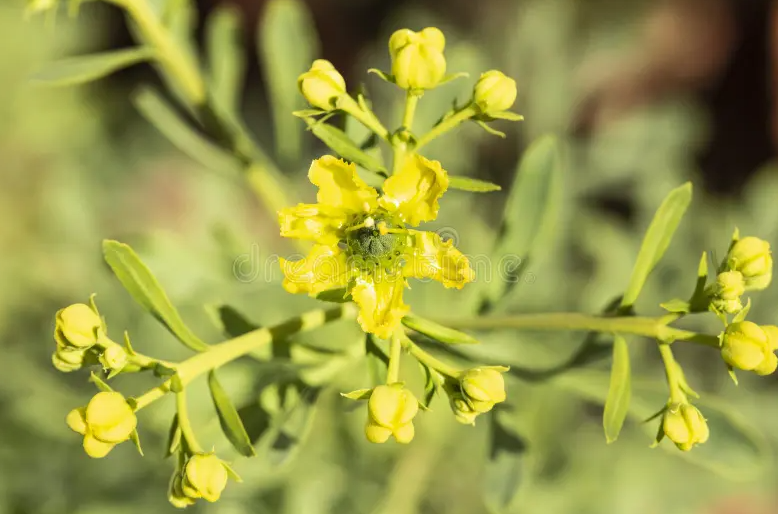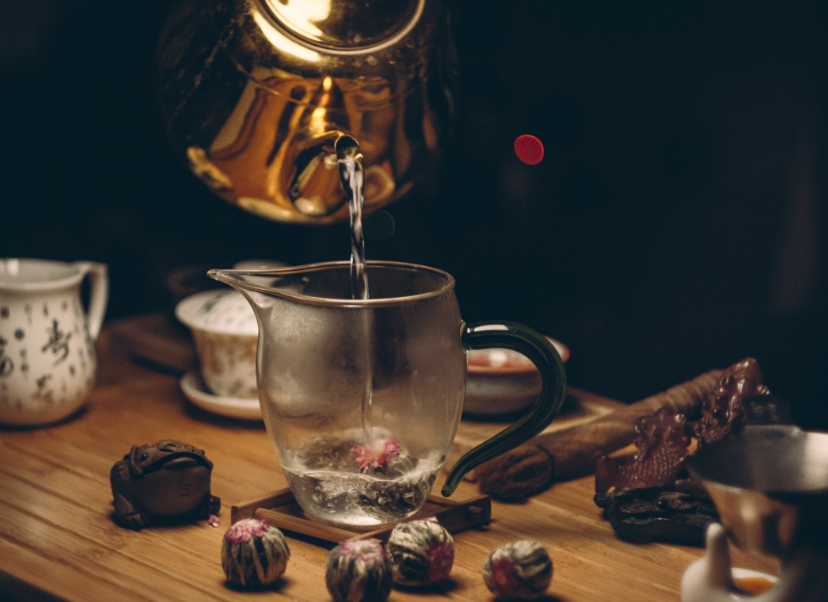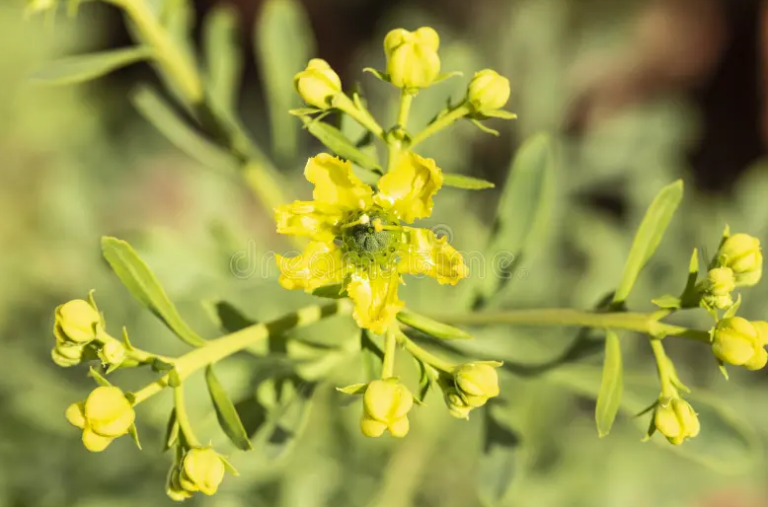As an avid tea enthusiast, I’ve always been intrigued by the rich heritage and diverse flavors of herbal teas. Today, I’m thrilled to introduce you to the captivating world of rue tea.
This unique and flavorful beverage, crafted from the leaves of the rue plant (Ruta graveolens), offers a delightful and soothing experience that’s sure to tantalize your taste buds.
In this comprehensive guide, we’ll dive into the fascinating history, health benefits, and the step-by-step process of brewing the perfect cup of rue tea.
Whether you’re a seasoned tea connoisseur or a curious newcomer, you’re about to embark on a journey of aromatic exploration and discover the joys of this remarkable herbal infusion.
Rue Plant: From Garden to Cup
The rue plant, also known as the common rue or herb of grace, is a perennial shrub native to the Mediterranean region, Macaronesia, and southwest Asia.
With its distinctive blue-green, fern-like foliage and clusters of bright yellow flowers, rue is not only a beautiful addition to gardens but also a plant with a rich history of culinary and medicinal use.

Botanically, rue belongs to the Rutaceae family, which includes other aromatic plants like citrus fruits. Its scientific name, Ruta graveolens, reflects its intense, pungent aroma that has been both celebrated and cautioned against throughout the ages.
Cultivating and Harvesting Rue for Tea
Rue thrives in full sun and well-drained soil, making it a hardy choice for xeriscaping or rock gardens. It can tolerate a range of soil pH levels, from slightly acidic to slightly alkaline, and its drought-tolerant nature makes it an excellent selection for water-conscious gardeners.
To harvest rue leaves for your tea, simply snip the tender, young leaves from the plant, being careful to avoid contact with the sap, which can cause skin irritation.

Gently rinse the leaves and allow them to dry completely before storing them in an airtight container. This will ensure your rue remains fresh and potent for your future tea-brewing sessions.
The Health Benefits of Rue Tea
Rue tea has been revered for its impressive array of health benefits, making it a valuable addition to any wellness routine. Let’s explore some of the key advantages of incorporating this herbal elixir into your daily life:
Natural Diuretic Properties
Rue tea is renowned for its diuretic effects, meaning it can help stimulate the kidneys and promote the elimination of excess fluids from the body. This can be beneficial for reducing bloating, aiding digestion, and supporting overall kidney health.
Antioxidant-Rich
The leaves of the rue plant are brimming with antioxidants, which can help neutralize harmful free radicals and support a stronger immune system. Consuming rue tea on a regular basis may contribute to overall well-being and vitality.
Menstrual Regulation
Historically, rue has been used as an emmenagogue, a substance that can help regulate and stimulate menstrual flow. For individuals dealing with irregular periods or menstrual cramps, rue tea may offer a natural solution to find relief.
It’s important to note that while rue tea has many potential health benefits, it should be consumed with caution, as the plant itself can be toxic in large doses.
Pregnant individuals, those with kidney or liver conditions, and those taking certain medications should consult with a healthcare professional before incorporating rue tea into their routine.
The Art of Brewing the Perfect Cup of Rue Tea
Now that you’re acquainted with the incredible versatility of rue, let’s dive into the step-by-step process of brewing the perfect cup of this aromatic herbal delight.

Ingredients
- Dried rue leaves (approximately 1-2 teaspoons per cup of tea)
- Fresh, filtered water
- Honey or lemon (optional)
Brewing Instructions
- Bring fresh, filtered water to a boil in a clean teapot or saucepan.
- Once the water reaches a rolling boil, turn off the heat and allow it to rest for a minute or two, until the first bubbles start to appear at the bottom of the pot.
- Add 1 to 2 teaspoons of dried rue leaves to the hot water, depending on your desired strength of flavor.
- Cover the pot and let the rue leaves steep for 10 minutes, allowing the aromatic compounds to infuse the water.
- After the steeping time, carefully strain the tea through a fine-mesh sieve or tea strainer to remove the leaves.
- Optionally, you can stir in a touch of honey or a squeeze of fresh lemon juice to add a subtle sweetness and brightness to the tea.
Serve your freshly brewed rue tea in your favorite mug or teacup, and savor the earthy, herbaceous aroma and soothing flavor. Remember to sip slowly and enjoy the meditative experience of this unique herbal beverage.
Incorporating Rue Tea into Your Wellness Routine
Beyond the pure enjoyment of sipping on a delightful cup of rue tea, this herbal infusion can be integrated into your overall wellness regimen in various ways.

Here are a few suggestions to help you maximize the benefits of this remarkable tea:
Digestive Support
Rue tea’s diuretic properties can help alleviate digestive issues like bloating, gas, and constipation. Incorporating it into your daily routine can support a healthy and balanced gut.
Menstrual Management
For individuals dealing with irregular menstrual cycles or painful cramps, rue tea may offer a natural solution. Its emmenagogue properties can help regulate flow and provide relief from menstrual discomfort.
Immune System Boost
The antioxidants present in rue leaves can contribute to a stronger immune system, helping your body better defend against illness and infection. Sipping on rue tea can be a simple yet effective way to support your overall health.
Relaxation and Stress Relief
The aromatic and soothing qualities of rue tea can have a calming effect on the mind and body. Indulging in a warm cup of this herbal elixir can be a wonderful way to unwind, de-stress, and promote a sense of inner tranquility.
Remember, as with any herbal remedy, it’s crucial to consult with a healthcare professional before incorporating rue tea into your routine, especially if you have any underlying medical conditions or are taking medication.

Exploring the Cultural and Historical Significance of Rue
Rue’s significance extends far beyond its modern-day use as a tea or herbal supplement. This captivating plant has been woven into the fabric of various cultures and belief systems throughout history, lending it an intriguing and multifaceted legacy.
In ancient Greece, rue was associated with the goddess Artemis and was believed to have purification and protective properties. It was often used in rituals and ceremonies and even adorned the crowns of victorious athletes.
During the Middle Ages, rue was considered an herb of grace, earning it the moniker “herb of grace.” It was believed to have the power to ward off evil spirits and was widely used in religious ceremonies and folk remedies.
In traditional Chinese medicine, rue has been utilized for its purported health benefits, with its leaves and seeds being incorporated into various tonics and remedies.
Today, rue continues to hold a special place in the hearts and gardens of many, captivating us with its unique blend of history, folklore, and holistic health benefits.
Safety Considerations and Precautions
While rue tea offers a wealth of potential benefits, it’s crucial to approach its consumption with caution and care. The rue plant, including its leaves and essential oils, can be highly toxic if consumed in large quantities or improperly prepared.
Pregnant and breastfeeding individuals should avoid rue tea entirely, as it may have uterine-stimulating effects and could potentially harm the developing fetus or nursing infant.
Those with existing kidney or liver conditions should also exercise extra caution, as rue may exacerbate these issues.
Additionally, rue can increase the skin’s sensitivity to sunlight, leading to a heightened risk of sunburns, rashes, and blistering. If you’re taking medications that also sensitize the skin, it’s best to avoid using rue products altogether.
When consuming rue tea, always start with small doses and monitor your body’s reaction closely. If you experience any adverse effects, such as nausea, vomiting, or dizziness, discontinue use immediately and consult a healthcare professional.
Conclusion: Discovering the Wonders of Rue Tea
In conclusion, rue tea is a captivating and multifaceted herbal beverage that offers a wealth of benefits and a rich historical legacy.
From its diuretic properties to its potential for menstrual regulation and immune system support, this aromatic infusion is a true delight for the senses and the body.
As you embark on your rue tea journey, remember to approach its consumption with care and caution, always prioritizing your health and safety.
By integrating this remarkable tea into your wellness routine, you’ll be unlocking a world of ancient wisdom, modern healing, and pure sensory pleasure.
